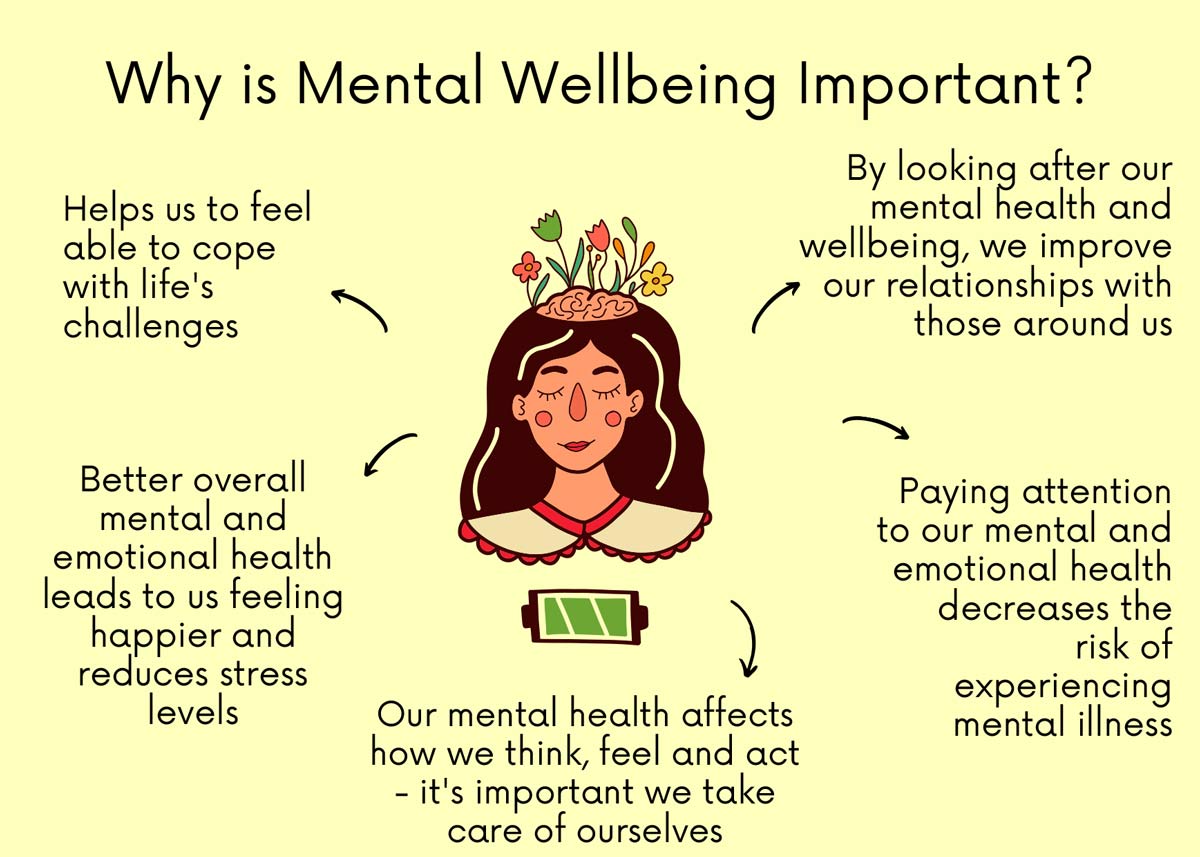Why Mental Health Days Are Crucial for Well-being: A Guide to Prioritizing Self-Care
Delve into the significance of mental health days for overall well-being with an exploration that promises to shed light on the importance of self-care and mental rejuvenation.
Explore the various aspects of why mental health days play a crucial role in maintaining a healthy work-life balance and promoting mental wellness.
Importance of Mental Health Days

Taking time off for mental health is crucial for individuals to recharge and take care of their well-being. In today's fast-paced world, stress and anxiety levels can quickly accumulate, leading to burnout and decreased productivity. Mental health days provide a much-needed break to reset and prioritize self-care.
Mental Health Days Contribute to Overall Well-being
- Mental health days allow individuals to rest and recharge, reducing stress levels and improving mental clarity.
- By taking time off to focus on self-care, individuals can prevent burnout and maintain a healthy work-life balance.
- Improving mental well-being through regular breaks can lead to increased happiness and overall life satisfaction.
Preventing Burnout and Improving Productivity
- Regular mental health days can prevent burnout by giving individuals the opportunity to address underlying stressors and take proactive steps towards better mental health.
- By prioritizing self-care and mental well-being, individuals can return to work feeling refreshed and rejuvenated, leading to increased productivity and creativity.
- Allowing time for rest and relaxation can help individuals recharge their energy levels and approach tasks with a renewed sense of focus and motivation.
Signs that Mental Health Days are Needed

Recognizing when a mental health day is necessary is crucial for maintaining overall well-being. Here are some common signs that indicate the need for a mental health day:
1. Feeling Overwhelmed and Stressed
Experiencing persistent feelings of overwhelm, stress, or burnout can be a clear indicator that you need to take a mental health day. This could be due to work pressure, personal issues, or a combination of factors.
2. Lack of Motivation and Productivity
If you find yourself struggling to focus, lacking motivation, and experiencing a decrease in productivity, it may be a sign that you need to step back and recharge. Mental health days can help you reset and regain your focus.
3. Physical Symptoms of Stress
Physical symptoms such as headaches, muscle tension, fatigue, and changes in appetite or sleep patterns can be a manifestation of underlying stress and anxiety. Taking a mental health day can help alleviate these symptoms and prevent them from escalating.
4. Irritability and Mood Swings
Feeling irritable, easily agitated, or experiencing frequent mood swings can be a sign that your mental health is compromised. Taking time off to prioritize self-care and relaxation can help improve your mood and emotional well-being.
5. Persistent Feelings of Sadness or Anxiety
If you find yourself struggling with persistent feelings of sadness, anxiety, or hopelessness, it may be a red flag that you need to prioritize your mental health. Ignoring these feelings can have detrimental effects on your overall well-being
Activities for Mental Health Days

Taking the time to focus on your mental well-being is crucial for overall health. Engaging in activities that promote relaxation and self-care can help recharge your mind and improve your mental state.
1. Practice Mindfulness
Engaging in mindfulness activities such as meditation, deep breathing exercises, or yoga can help calm the mind and reduce stress levels.
2. Spend Time in Nature
Connecting with nature by going for a walk in the park, hiking, or simply sitting outside can have a positive impact on mental health.
3. Creative Expression
Engaging in creative activities like painting, drawing, writing, or playing music can be therapeutic and help express emotions.
4. Physical Exercise
Physical activity releases endorphins, which can improve mood and reduce symptoms of anxiety and depression. Consider activities like jogging, dancing, or practicing yoga.
5. Disconnect from Technology
Taking a break from screens and social media can help reduce feelings of overwhelm and allow for mental rest. Try unplugging for a few hours and focus on real-life interactions.
6. Treat Yourself
Indulge in activities that bring you joy, whether it's taking a long bath, reading a book, watching your favorite movie, or enjoying a special treat.
7. Reach Out for Support
Connecting with a friend, family member, or therapist can provide emotional support and a sense of community during difficult times.
Employer Support for Mental Health Days
Creating a workplace environment that supports mental health days is crucial for the overall well-being of employees. When employers prioritize mental health, it can lead to increased productivity, higher job satisfaction, and lower rates of burnout.
Importance of Workplace Policies
Implementing clear policies regarding mental health days can help normalize taking time off for mental well-being. By formalizing these policies, employees may feel more comfortable requesting time off when needed.
Examples of Companies with Successful Programs
- Google:Google offers on-site counseling services, mental health workshops, and an employee assistance program to support mental health.
- Salesforce:Salesforce provides employees with mental health resources, including therapy sessions, meditation apps, and mental health days as part of their benefits package.
Encouraging Employees to Prioritize Mental Health
- Provide training for managers on recognizing signs of burnout and mental health struggles in employees.
- Normalize conversations around mental health by sharing resources and stories of employees who have benefited from taking mental health days.
- Offer flexible work arrangements and encourage a healthy work-life balance to support overall mental well-being.
Wrap-Up
In conclusion, prioritizing mental health days is not just a luxury but a necessity in today's fast-paced world. By taking the time to care for our mental well-being, we are investing in a healthier, more productive future.